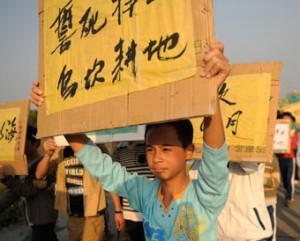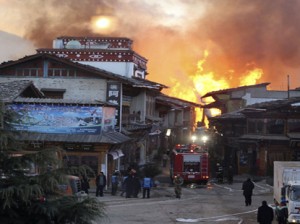Passang Lhamo, a 62 year old Tibetan woman in the Kyegudo province in Tibet burned herself on 13 September last year. The reason for her extreme step was to protest against the Chinese government for its illegal acquisition of her ancestral land. Passang pleaded constantly with Chinese government representative to let her retain her own land, but the officials refused to listen to her, and left her without compensationd. She later visited the Chinese authorities at Beijing but they took no action. After her struggle, and the pain she endured, she finally decided to burn herself right outside the officials’ building in Beijing.
Passang Lhamo might be the first one in Beijing to immolate herself to protest against the hard core Chinese government policy on Land accusation,but we have seen nearly 100 other Tibetan people immolated on account of hard and inhumane repressive measures of the Chinese Government on Tibetans in Tibet.
Kyegudo, also known as the Yushu to the Chinese, is situated on the northwestern Qinghai province of the Tibetan Autonomous Region. It was struck by a massive earthquake in 2010. Many Tibetans in the region were made homeless, losing their farmland and businesses. People were deprived of economic opportunities and hope. The government later threatened to forcibly relocate some 600 people, mostly Tibetans, from what was prime real estate in order to rebuild the town as what official became billed as an “Ecological Tourism Centre”.
Land grabbing has become a regular scene in the eastern part of the country under the Chinese government,their irregular and unpredictable laws and policy affecting the most vulnerable people. In this case the Tibetan people in the region faced major discrimination and were reduced to a state of helplessness. Their representations were always unheard.
Similar cases are not only prevalent in Tibet, but are taking place in China as well. A recent report from Amnesty International said that forced evictions in China have risen sharply over the past couple of years as debt-laden local governments seek to shore up their precarious finances, raising funds by selling seized land to developers. The human rights group partly blamed the 2008 financial crisis. Prominent Chinese scholars have estimated that land sales contributed about 46 percent of the total income of local authorities.
Though the Chinese government has banned the use of violence in urban evictions, and granted residents facing the eviction new protection, the report said people in rural areas, including Tibet, do not benefit from these protections.





 Print
Print Email
Email